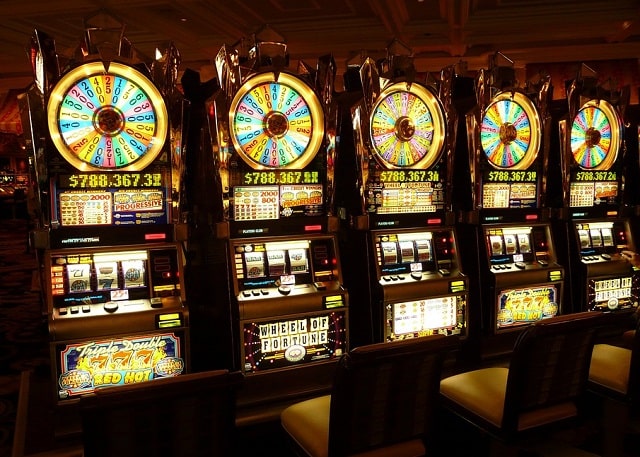Gambling myths abound, from those about the house always winning to slot machines having periods of hotness and coldness; by understanding chance we can disprove these false notions and increase our odds of success.
Results demonstrate that corrective messages online regarding health myths can have an immediate and dramatic effect on recipients’ beliefs, (future) behavior and feelings; however, ANCOVA analyses revealed no definitive role for image type in this context.
Myth 1: The house always wins
One of the most persistent gambling myths, but this simply isn’t true. While casinos do hold an advantage over players, this doesn’t mean that casinos always win outright; indeed, many players regularly outscore casinos by winning big! Luck may play some role; however, skill and proper bankroll management also matter greatly in ensuring the outcome of each gambling session.
This misconception likely stems from the rush of reward experienced when winning at gambling, which is caused by chemicals released by their brain when winning, leaving people wanting more of that feeling again and again – eventually leading them down a dangerous path towards problem gambling habits. It’s important to remember that gambling should only ever be seen as entertainment and not an avenue of income generation.
Some people mistakenly believe that casinos manipulate the air quality in their buildings in order to increase customer energy and gambling activity. It’s true that casinos prioritize the safety of their patrons, however this does not include manipulating air quality; there is also no evidence suggesting casinos utilize any form of pheromones in order to alter player behaviour.
Myth 2: If you keep playing, you’ll eventually win
Gambling isn’t a surefire way to make money; most gamblers end up losing in the long run. There are ways you can reduce your gambling losses though, including setting budgets and setting time limits on when and how long to gamble. Most importantly, remember that gambling should serve only as a form of entertainment and not an alternative form of income generation.
Many players believe they will eventually win by continuing to gamble – known as the gambler’s fallacy – but this can be a dangerous mindset to have when you enter any casino game. Your odds of success or failure in casino gaming depend solely on chance; past spins or hands play no bearing on future outcomes regardless of whether it be slots machines, roulette wheels or card games.
Though winning big in gambling is certainly possible, betting more than you can afford to lose is essential in avoiding compulsive gambling and other hazards. Winning can create an addictive cycle which leads to further gambling activities; therefore it’s wise to set budgets and stick to them – this way winning won’t cause additional gambling activity that leads to bad habits like compulsive betting. Finally, gambling addiction treatment options exist should you struggle with such problems.
Myth 3: Casino bonuses only benefit high rollers
The popular belief that casino bonuses only benefit high rollers stems from an assumption that higher bettors are more likely to win and thus should receive larger bonuses. Unfortunately, this assumption is incorrect since bonuses do not correlate with a gambler’s chances of success; all gamblers are equally likely to succeed as their expected return to player (ERP) remains constant regardless of bet size.
Researchers have developed an array of best-practice debunking strategies (Cook and Lewandowsky 2011; Dan 2021; Swire and Ecker 2018). According to these researchers, debunking texts should be easy to comprehend and concise while using clear language; they should also provide comprehensive explanations that replace causal arguments that initially provided misinformation (Cook and Lewandowsky 2011, Johnson and Seifert 1994, Ecker et al 2015).
Research indicates that the effectiveness of debunking messages depends on factors like recipient predispositions, perceived credibility of source material and type of image used – machine-technical images tend to have a stronger persuasive effect than diagrams or expert images in debunking messages.
Myth 4: Casinos are rigged
Many players believe that casinos are set up to guarantee their profits, whether that means controlling slot machine payouts or manipulating roulette spins. But this couldn’t be further from the truth; casinos are subject to stringent regulations and external audits designed to guarantee fair play, so any attempts at manipulating games would likely fail due to these safeguards. Even if casino games give the house an edge over time without impacting individual wins or losses directly.
This myth is further supported by the psychological reaction that gamblers experience when winning, such as feeling an immediate rush of pleasure when winning something. When this occurs, it can trigger further gambling experiences which may then lead to problem gambling; but this can be avoided by developing an awareness of each game’s odds as well as practicing responsible gaming behaviors.
Casinos may be addictive, but they are not designed to cause you to lose. If a croupier wins your money it likely means they made smart decisions and possess superior skill.
Nowhere is this more false than in the popular myth that casinos inject pure oxygen into the air to keep customers awake for longer and spend their money. Such action would increase flammability levels significantly and put casinos at risk of burning down! Plus, in most countries it’s illegal to tamper with air supplies!





